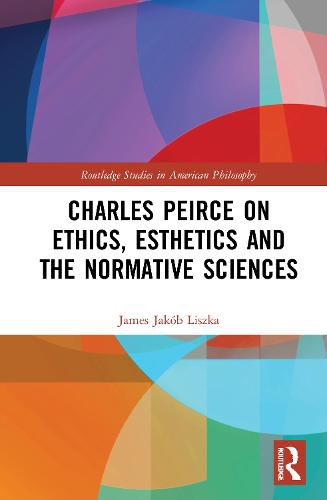Readings Newsletter
Become a Readings Member to make your shopping experience even easier.
Sign in or sign up for free!
You’re not far away from qualifying for FREE standard shipping within Australia
You’ve qualified for FREE standard shipping within Australia
The cart is loading…






This book presents a comprehensive and systematic picture of Charles Peirce’s ethics and aesthetics, arguing that Peirce established a normative framework for the study of right conduct and good ends. It also connects Peirce’s normative thought to contemporary debates in ethical theory.
Peirce sought to articulate the relation among logic as right thinking, ethics as good conduct and, in an unorthodox sense of aesthetics, the pursuit of ends that are fine and worthy. Each plays an important role in ethical life. Once aesthetics has determined what makes an end worthy and admirable, and ethics determines which are good and right to pursue, logical and scientific reasoning is employed to figure the most likely means to attain those ends. Ethics does the additional duty of ensuring that the means conform to ideals of conduct. In the process, Peirce develops an interesting theory of moral motivation, an account of moral reasoning, moral truth, and a picture of what constitutes a moral community.
Charles Peirce on Ethics, Esthetics and the Normative Sciences will be of interest to scholars and students working on Peirce, American philosophy, and metaethics.
$9.00 standard shipping within Australia
FREE standard shipping within Australia for orders over $100.00
Express & International shipping calculated at checkout
This book presents a comprehensive and systematic picture of Charles Peirce’s ethics and aesthetics, arguing that Peirce established a normative framework for the study of right conduct and good ends. It also connects Peirce’s normative thought to contemporary debates in ethical theory.
Peirce sought to articulate the relation among logic as right thinking, ethics as good conduct and, in an unorthodox sense of aesthetics, the pursuit of ends that are fine and worthy. Each plays an important role in ethical life. Once aesthetics has determined what makes an end worthy and admirable, and ethics determines which are good and right to pursue, logical and scientific reasoning is employed to figure the most likely means to attain those ends. Ethics does the additional duty of ensuring that the means conform to ideals of conduct. In the process, Peirce develops an interesting theory of moral motivation, an account of moral reasoning, moral truth, and a picture of what constitutes a moral community.
Charles Peirce on Ethics, Esthetics and the Normative Sciences will be of interest to scholars and students working on Peirce, American philosophy, and metaethics.